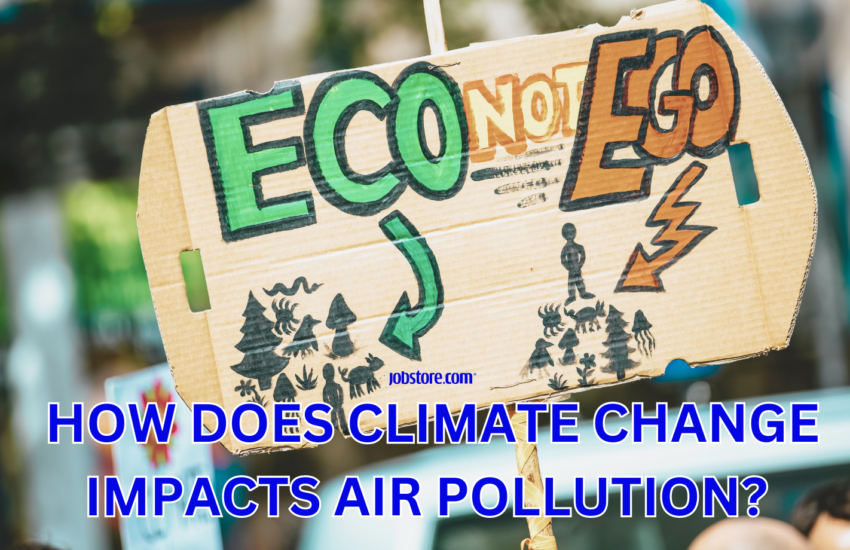Climate change and air pollution are interconnected in a complex way. Climate change refers to long-term changes in Earth’s climate caused by human activities that release harmful greenhouse gases into the atmosphere such asS carbon dioxide (CO2) and methane (CH4). The mixture of harmful substances and particles in the atmosphere can be detrimental to human health and the environment.

Related link: 10 Tips To Survive Malaysian Heat Wave
Here are ways how climate change is affecting air pollution:
1. Temperature & Air Quality
Higher temperatures caused by climate change can lead to the formation of ground-level ozone which is a major component of smog. Ozone is created when pollutants from vehicles, industries or other sources react to sunlight. Warmer temperatures can enhance these chemical reactions, leading to higher concentrations of ground-level ozone which is harmful to human health, specifically the respiratory system.
2. Wildfires
Climate change can contribute to the increased frequency and intensity of wildfires. Wildfires release vast amounts of particles and harmful gases such as carbon monoxide and nitrogen oxides. These emissions of harmful gases can significantly worsen the air quality and become a health risk for people, especially those with respiratory conditions.
3. Changes in Weather Patterns
Climate change can alter weather patterns which will then lead to changes in precipitation and wind patterns. These changes can influence the dispersion of air pollutants. For example, stagnant weather conditions can trap pollutants near the ground for long periods leading to severe air pollution in urban areas.
4. Impact on Emissions
Climate change can influence human behaviour and economic activities. For instance, as temperature increases, there may be an increased demand for air conditioning which then will result in higher electricity consumption and more emissions from power plants.
5. Impact on Aerosols
Aerosols are tiny little particles suspended in the atmosphere that has both cooling and warming effects on the planet. They also influence the formation of clouds and when this happens, it can alter the distribution of aerosols which will then affect the quality of air and the atmospheric processes.
6. Sea Level Rise & Coastal Pollution
Climate change-induced sea-level rise can worsen coastal pollution. If the sea level gets higher, it can deeply affect the low-lying coastal areas by releasing pollutants stored in the soil and sediments. Additionally, as storm surges, it can transport the pollutants from the coastal regions down to the inland areas.

